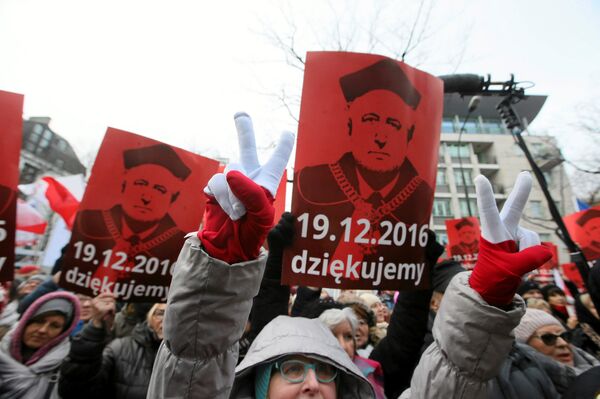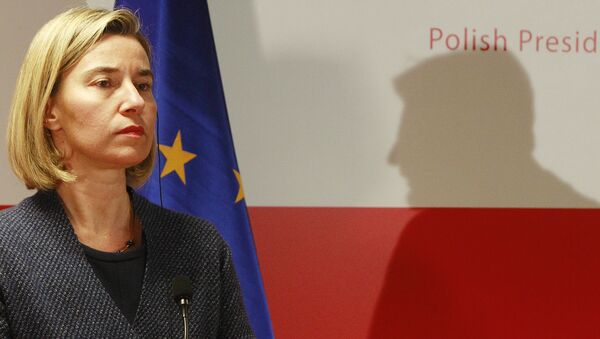The Polish government has been in dispute with the Commission for more than a year and had been given a series of warnings — including a threat to withdraw Poland's voting rights in the EU, a sanction that has never been invoked before.
However, in a sign that the Commission is wary of imposing the sanctions and further fueling anti-Brussels sentiment in Poland and elsewhere, it is said to be sounding out the views of member states. "The idea is to gauge EU governments' views and support for moving forward," an EU official said, according to Reuters.
In December, 2016, the Commission officially warned Warsaw that it would remove its voting rights in the EU, if the Polish government did not roll back controversial changes to its Constitutional Court. With Poland defiant in the face of the criticism — denying any "systemic threat to the rule of law," the credibility of the Commission is now at stake.
With Hungarian support, #Poland defies EU over #ruleoflaw https://t.co/hR6E8pC1KY Polish FM: "case closed" https://t.co/4ooSpIqhce
— Statewatch (@StatewatchEU) 23 February 2017
The dispute arises from changes to Poland's Constitutional Tribunal, December 2015, when the Polish Government added five "politically friendly" judges to the country's Constitutional Tribunal, in a move seen by critics as making it easier to push through legislation with less opposition.
Another amendment meant that the tribunal would need a two-thirds majority to take a decision on constitutional matters instead of a simple majority. The minimum number of judges needed to make a decision was also raised from nine to 13, making it more difficult to convene a quorum.

Chief Justice Andrzej Rzeplinski — whose fixed term as president of the Constitutional Tribunal came to end, December, was replaced by another justice, Julia Przylebska, who, with her husband, is seen as being close to the Polish President Andrzej Duda.
The constitutional court changes — as well as a clampdown on the media — have led to months of street protests throughout Poland.
.@EU_Commission Stop further deterioration of #RuleofLaw and human rights in #Poland and activate #Article7: https://t.co/ZcJnBn5Tbt pic.twitter.com/YZAmCHnjuc
— FIDH (@fidh_en) February 17, 2017
The European's threat involves invoking Article 7 of the Treaties of the European Union, which allows for it to: "suspend certain of the rights deriving from the application of the Treaties to the Member State in question, including the voting rights of the representative of the government of that Member State in the Council." Article 7 has never — so far — been invoked against an EU state.


